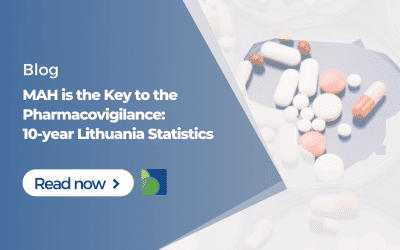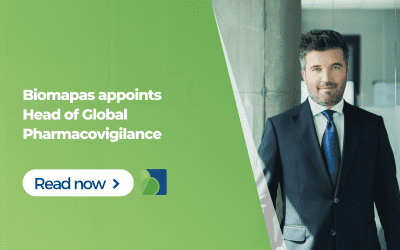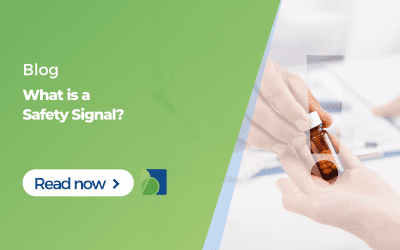
The EU changes on the regulatory side have been significant. It has not only seen pharma companies face a new challenge to meet the requirements but also regulated medicinal products manufacturers, distributors and Pharmacovigilance professionals. The Local Person for Pharmacovigilance (LPPV) is one of the essential players in this field to ensure safety and compliance.
What is the Local Person for Pharmacovigilance (LPPV) in the EU?
The Local Person for Pharmacovigilance in the EU ensures that a company complies with pharmacovigilance requirements when marketing a medicinal product in that Member State. This includes ensuring that a company has systems and processes to collect, record, report and follow up on suspected adverse reactions.
The Local Person for Pharmacovigilance is also responsible for liaising with the competent authorities on pharmacovigilance matters and representing the company in dealings with these authorities. In addition, the Local Person for Pharmacovigilance may be required to provide input into risk management plans and participate in safety reviews.
It is important to note that the LPPV role is distinct from that of the Qualified Person for Pharmacovigilance (QPPV). The QPPV is responsible for overall pharmacovigilance activities within a company, including oversight of national LPPVs.
Why Do You Need an LPPV?
The Local Person for Pharmacovigilance in the European Union (EU) is a crucial figure in ensuring the safety of medicines. They monitor and report adverse events, collect and maintain patient data, and conduct risk management activities.
The Local Person for Pharmacovigilance plays a vital role in ensuring that medicines are safe and effective. They are the first line of defence against potential safety issues and can help prevent serious problems. Reporting adverse events and carrying out risk management activities help keep patients safe and ensure that medicines remain effective.
You might need a local person for pharmacovigilance in the EU for many reasons. First and foremost, they can help ensure that your clinical trials are conducted in compliance with all applicable laws and regulations. They can also help you navigate the often-complex process of obtaining marketing authorization for your product.
In addition, a local person can be a valuable resource in understanding the preferences and needs of individual European regulators. They can also provide valuable insights into the competitive landscape in the EU, and help you develop strategies for success in this highly regulated market.
The local person for pharmacovigilance also works closely with the European Medicines Agency to monitor the safety of medicines and keep up to date with the latest research.
Ultimately, working with a local person for pharmacovigilance in the EU can help you bring your product to market more quickly and efficiently while minimizing risk and maximizing the opportunity for success.
How do you become a Local Person for Pharmacovigilance in the EU?
The Local Person for Pharmacovigilance in the EU ensures that a company’s pharmacovigilance activities comply with EU regulations. They also liaise with the European Medicines Agency (EMA) and National Competent authorities on pharmacovigilance matters.
To become a Local Person for Pharmacovigilance in the EU, you must have a scientific or medical degree and experience in pharmacovigilance or clinical research. You must also be fluent in English and have a working knowledge of another EU official language.
Which regulations exist for the LPPV role?
Numerous regulations exist for the LPPV role. The most important of these is the Good Pharmacovigilance Practices (GVP) Regulation, which came into force in 2012. This regulation requires companies to have a qualified person responsible for pharmacovigilance (QPPV) who resides in an EU Member State. In addition, the QPPV must be available to the competent authorities and stakeholders on a 24/7 basis.
The LPPV role is also subject to the Clinical Trials Directive, which requires companies to appoint a Local Trial Coordinator (LTC) for each clinical trial conducted in the EU. The LTC ensures that the trial is conducted following the protocol and applicable regulations.
In addition, the LPPV must comply with all national regulations relating to pharmacovigilance, including those relating to adverse event reporting.
Regional differences for the LPPV in the EU
There are several reasons why the Local Person for Pharmacovigilance (LPPV) in the EU may differ from country to country. The first reason is that each Member State of the EU has its rules and regulations regarding pharmacovigilance. In some cases, these rules may be more stringent than those of the EU, while in others, they may be less. As a result, the LPPV in each Member State may have different responsibilities and duties.
Another reason for regional differences in the LPPV is that there may be different levels of experience and expertise among LPPVs in different countries. In some cases, an LPPV may have many years of experience working in pharmacovigilance, while in other cases, an LPPV may be new to the field. This can lead to differences in how each LPPV approaches their work.
Finally, cultural differences can also play a role in creating regional differences among LPPVs. For example, some cultures emphasize individual autonomy more than others. This can lead to LPPVs in these cultures taking on a more proactive role in ensuring patient safety, while LPPVs from cultures that emphasize collectivism may take a more passive approach.
Outsourcing the LPPV role to a CRO?
The LPPV role in pharmacovigilance is to ensure that companies comply with the requirements of the European Union (EU) Pharmacovigilance Directive. The directive requires companies to have a designated LPPV responsible for the safety of medicines in their country.
Outsourcing the LPPV role to a CRO can be an effective way to ensure compliance with the directive. CROs can provide expert knowledge and support in all aspects of pharmacovigilance, from data collection and analysis to reporting and risk management.
In addition, outsourcing the LPPV role can free up internal resources so that companies can focus on other areas of their business. It can also be used as a cost-saving measure, as CROs usually charge lower fees than in-house pharmacovigilance departments.
No Results Found
The page you requested could not be found. Try refining your search, or use the navigation above to locate the post.








